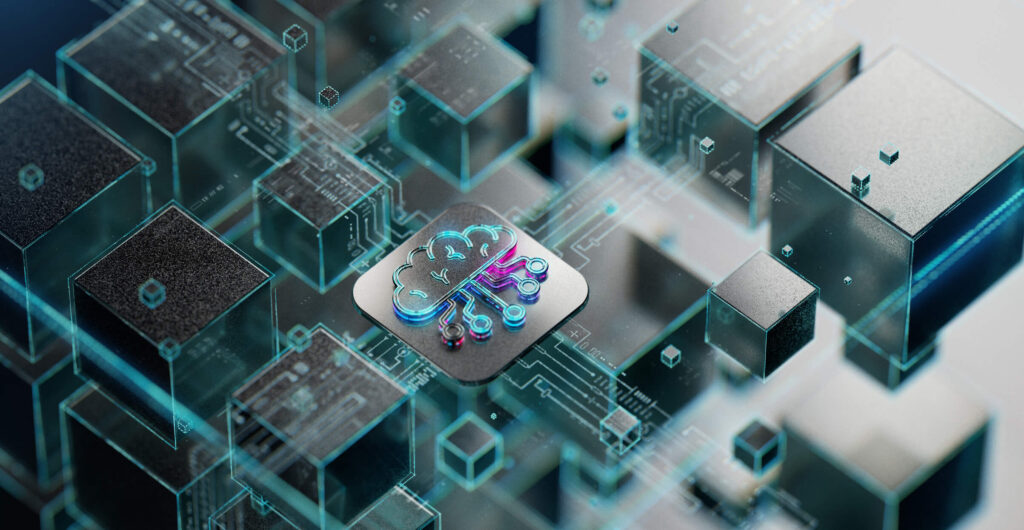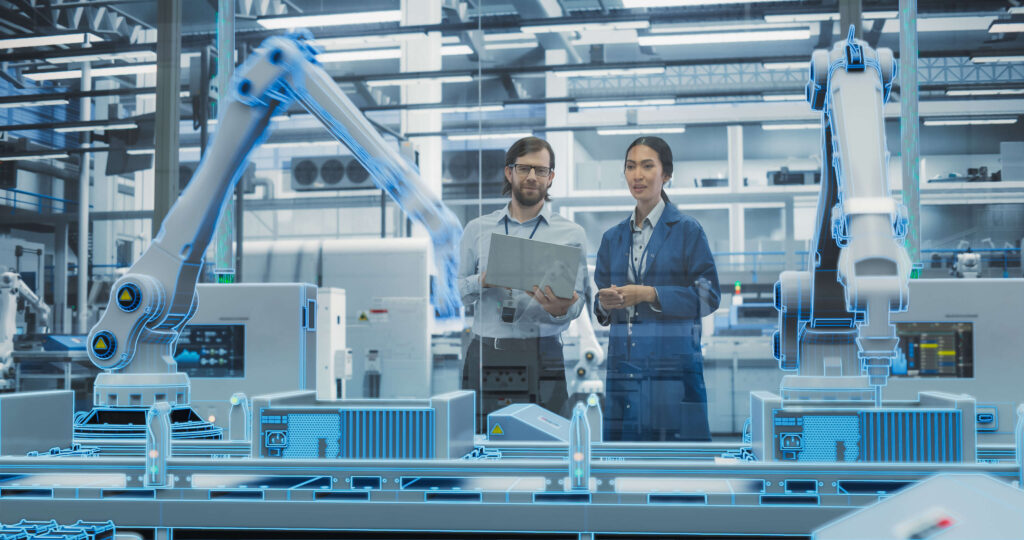The rapid evolution of technology is bringing both exciting opportunities and challenges to the labour market. With 2024 being already a year of many ground-breaking innovations in which augmented reality, robotics and artificial intelligence (AI) were more prevalent, there are numerous other trends that are likely to impact industries in 2025 and beyond.
Currently, technological developments are changing facilities and impacting the nature of careers in domains such as biotechnology, data science, cybersecurity, software development, and engineering. In addition to transforming workflows, advances in AI, quantum computing, and green technologies are also driving up demand for specialised positions. For professionals who are prepared to embrace the future of work, this changing landscape presents a multitude of opportunities.
Table of Contents
- Generative AI and Advanced Machine Learning
- Sustainable Tech and Green Innovations
- Autonomous Systems
- Quantum Computing
- Extended Reality (XR)
- 5G and Edge Computing
- Biotechnology and Health Tech Innovations
- Blockchain Evolution
- Digital Twins and Simulation Technology
- Deep Tech and Spatial Computing
- Embracing the Future of New Technologies
Are you ready to explore new careers and enter the world of spatial computing, autonomous systems or generative AI? Here’s a closer look at the technologies transforming the workplace and the roles they are creating.
Generative AI and Advanced Machine Learning

Generative AI, also known as GenAI, is currently a game-changer in a number of industries, such as content creation, design, and healthcare. By utilising advanced machine learning algorithms, artificial intelligence is expanding possibilities and improving efficiency. AI is changing the previously unthinkable, from creating elaborate artwork and writing sophisticated code to diagnosing medical issues with previously unheard-of accuracy.
In our article titled ‘Can AI Replace Human Intelligence’ we dive deeper into the remarkable advancements in AI technology and explore its potential to revolutionise both our professional and personal lives.
Key Applications: Personalised education tools, AI-assisted design, automated coding systems.
In-Demand Roles: Generative AI specialists, machine learning engineers, and prompt engineers.
Sustainable Tech and Green Innovations
Technologies including carbon capture systems, green cloud, cloud-based and energy-efficient computing are becoming necessary as a result of the worldwide push towards sustainability. Additionally, more sectors, including construction and manufacturing, are investing in sustainable materials or green packaging. Also, electronics are becoming greener and more energy-efficient as more companies focus on reducing their carbon footprint and environmental impact.
By lowering emissions, maximising resource utilisation, and facilitating real-time monitoring and maintenance, these technologies assist enterprises in meeting environmental targets while enhancing productivity and resilience.
Key Applications: Renewable energy grids, carbon footprint analytics, and sustainable manufacturing practices.
In-Demand Roles: Sustainability engineers, green IT consultants, and environmental data analysts.
Autonomous Systems

Autonomous systems are revolutionising manufacturing, logistics, and transportation, from drones and self-driving cars to fully automated factories. By decreasing human error and simplifying intricate procedures, these technologies increase productivity, increase safety, and reduce operating expenses. For instance, the food and beverage industry benefits greatly from automated solutions, including robotic assembly lines, streamlined food production and safer food products thanks to AI.
Intelligent distribution networks, precision farming, and flexible supply chains are just a few of the new opportunities being made possible by increasingly sophisticated autonomous systems.
Key Applications: Smart warehouses, autonomous delivery networks, and precision agriculture.
In-Demand Roles: Robotics engineers, AI operations managers, and drone pilots.
Quantum Computing
Quantum computing will soon revolutionise businesses all over the world. Quantum computing is transforming industries like advanced medicine discovery, cryptography, and logistics optimisation with its unmatched capacity to process enormous volumes of data at extremely fast speeds. This discovery could spur innovation in a variety of industries by resolving complicated issues that were previously unsolvable by conventional computing.
According to Honeywell, quantum computing will solve a variety of issues in several industries, including machine learning, simulation, and optimisation. Honeywell is looking at particular industries that will be likely impacted by quantum computing, and these are: Aerospace, Chemistry, Healthcare and Pharmaceuticals, Logistic and Robotics and Finance.
Key Applications: Optimising supply chains, developing new pharmaceuticals, and enhancing cybersecurity.
In-Demand Roles: Quantum software developers, quantum researchers, and cryptographic specialists.
Extended Reality (XR)
Through the creation of immersive and interactive experiences, AR, VR, and MR—collectively referred to as Extended Reality (XR)—are revolutionising a variety of industries, including health & safety and entertainment. These technologies will be crucial in 2025 for improving customer interaction, facilitating smooth remote collaboration, and changing workplace training. Extended reality will enable companies to create innovative products, enhance employee competencies through lifelike simulations, and provide individualised, captivating customer experiences thanks to developments in hardware and software.
Key Applications: Immersive learning environments, virtual product showrooms, and remote surgical procedures.
In-Demand Roles: XR content creators, interaction designers, and virtual environment architects.
5G and Edge Computing
By bringing it closer to devices, the global rollout of 5G networks and the emergence of edge computing are transforming real-time data processing. In addition to lowering latency and improving performance, this potent mix is propelling IoT breakthroughs, enabling better autonomous vehicles, and assisting in the creation of effective smart city infrastructures. For instance, Swiss cities are at the forefront of embracing technological evolution by investing in smart parking solutions, LoRaWAN technology and IoT.
Key Applications: Connected healthcare devices, real-time industrial automation, and urban traffic management.
In-Demand Roles: Edge computing developers, IoT specialists, and network architects.
Biotechnology and Health Tech Innovations

healthcare industry into a new era. Currently, AI is helping medical professionals to better understand the patients’ health and even save lives. Personalised medicine and preventative care are now becoming the norm.
Have a look at our list of top 10 healthcare technology trends and find out which technologies are likely to have the biggest impact on the future of healthcare.
Key Applications: Gene editing, AI-powered health diagnostics, and digital therapeutics.
In-Demand Roles: Biotech researchers, health data analysts, and digital health consultants.
Blockchain Evolution
Blockchain technology is advancing beyond cryptocurrencies and finding revolutionary uses in fields like digital identity verification, supply chain management, and safe data exchange. Blockchain guarantees increased transparency, strong security, and operational efficiency by utilising its decentralised structure. As a cornerstone technology for the future of secure digital interactions, it makes it possible to track items in real-time, protects personal identities from fraud, and enables trustworthy data exchanges across industries.
Key Applications: Smart contracts, decentralised finance (DeFi), and digital identity verification.
In-Demand Roles: Blockchain developers, smart contract auditors, and DeFi strategists.
Digital Twins and Simulation Technology
Through the creation of virtual replicas of physical systems, digital twin technology enables simulation and real-time monitoring. Through the integration of sensor and Internet of Things data, these digital replicas aid in the optimisation of design, testing, and operating procedures.
By modelling patient reactions to treatments, they facilitate personalised medicine in the medical field. Digital twins in manufacturing improve predictive maintenance and product development. They enhance sustainability and the management of infrastructure in urban development.
Key Applications: Smart factory simulations, urban infrastructure planning, and medical device prototyping.
In-Demand Roles: Digital twin engineers, simulation developers, and industrial IoT specialists.
Deep Tech and Spatial Computing

Advancements in deep tech and spatial computing are reshaping industries by merging the physical and digital worlds. Deep tech innovations, including AI, quantum computing, and advanced robotics, are enabling breakthroughs in problem-solving and complex systems.
Spatial computing leverages previously mentioned AR, VR, and MR to create immersive, interactive environments, transforming how we work, learn, and interact with data. According to the World Economic Forum, the ability to superimpose digital items onto the physical world has made spatial computing the next big technological advancement.
Key Applications: AI-powered robotics, AR/VR training platforms, and quantum computing solutions.
In-Demand Roles: Deep tech engineers, spatial computing developers, and AR/VR content creators.
Embracing the Future of New Technologies
The rapid pace of technological advancement means that adaptability and continuous learning are more critical than ever. To stay ahead, professionals should focus on building skills in AI, cybersecurity, data analysis, and sustainable tech solutions.
By embracing these trends, individuals and organisations can thrive in an era of unprecedented innovation and opportunity.










